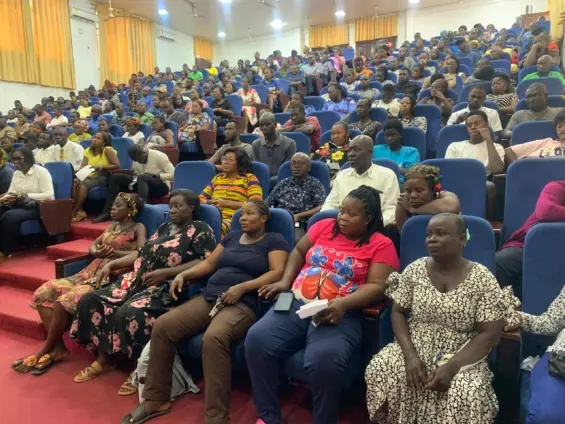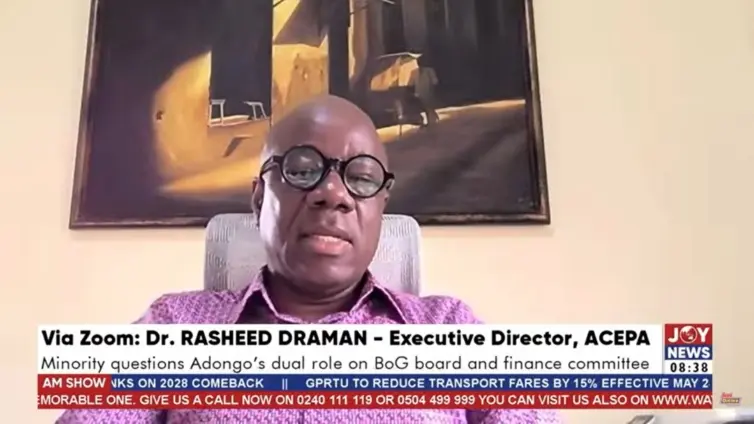The classrooms and hallways of Ghana’s educational institutions rely on more than just teachers. The Teachers and Educational Workers Union (TEWU) of the Trades Union Congress (TUC) is sounding the alarm about a looming crisis: a critical shortage of Education Support Personnel (ESP). These dedicated individuals – administrators, accountants, cleaners, and more – are the backbone of a functional school system, and TEWU is urging the government to address their growing needs. The call to action comes as the current ESP workforce is increasingly overburdened, and with a wave of retirements on the horizon, the situation threatens to become untenable. King James Azortibah, Secretary General of TEWU, recently highlighted these concerns at a press conference in Accra, emphasizing the importance of recognizing and investing in these often-overlooked members of the education community. The Education Support Personnel (ESP) shortage demands immediate attention to safeguard the learning environment for students and the well-being of staff.
The numbers paint a stark picture. The current complement of Education Support Personnel is struggling to keep pace with a growing student population. “The current number of ESP was being overburdened with extra duties, which had health implications, among other things,” Azortibah noted. This overextension is taking a toll, leading to burnout and potential health problems among the staff. Compounding the issue, TEWU projects that approximately 600 non-teaching staff are expected to retire this year, further depleting the ranks of ESP. Data collected by TEWU indicates a consistent loss of ESP members due to retirement, resignation, or death, with an average of 200 ESP members exiting monthly. Critically, current recruitment policies are failing to adequately replace these departing personnel, exacerbating the Education Support Personnel (ESP) shortage and placing even greater strain on the remaining workforce.
Every year on May 16th, the world recognizes the vital contributions of these unsung heroes on World ESP Day. The theme for this year’s World Education Support Personnel Day is “Go Public Invest in Education Support Personnel Ensure inclusive education.” Education International (EI), a global federation of teachers’ unions, emphasizes the indispensable role of ESP – from school nurses ensuring student health, to cafeteria workers providing nutritious meals, to maintenance crews ensuring a safe and clean learning environment. These individuals are the gears that keep the education system running smoothly. As King James Azortibah stated, “Without the ESP such as accountants, administrators, auditors…our schools simply cannot function effectively.”
The consequences of neglecting Education Support Personnel extend far beyond mere inconvenience. Declining public education budgets have contributed to a situation where ESP often face low salaries, decreased morale, and even the denial of annual leave. In some cases, the working conditions are downright hazardous. Azortibah pointed to the example of kitchen staff in senior high schools who are forced to use firewood for cooking, exposing them to harmful smoke and potential respiratory problems: “Imagine the kitchen staff serving breakfast, lunch and supper to over 5,000 students averagely, and daily using firewood for cooking and its health risks on these ESP in the senior high schools?” Anais Dayamba, Coordinator for Gender Equality Programme at EI, further emphasizes the lack of recognition and resources afforded to ESP, noting that “It is time the education communities and the government threw the spotlight on their invaluable work and advocated for the support they need to excel.”
TEWU is not simply highlighting the problem; they are offering solutions. The union is urging the government to formally acknowledge ESP as essential education workers and to actively involve them in policymaking decisions that affect their roles and working conditions. Education International (EI) is advocating for ESP to be recognized for their invaluable work and to be granted the same rights and conditions as other education personnel with similar qualifications. EI has even adopted a declaration on the rights and status of education support personnel, calling for its global application to ensure that these vital workers are treated with the respect and dignity they deserve.
“If the cleaner does not clean, the teacher cannot work. The student cannot sit in the dirty environment,” – Salamatu Braimah Mahamah, Chairperson of TEWU.
The plea from TEWU is clear: the government must take immediate action to address the critical Education Support Personnel (ESP) shortage. These individuals are not merely ancillary staff; they are essential components of a thriving education system. By acknowledging their value, investing in their well-being, and involving them in the decision-making process, Ghana can ensure a more robust, equitable, and ultimately, more effective education system for all. Addressing the Education Support Personnel (ESP) shortage is not just a matter of fairness; it is an investment in the future of Ghana’s students and the strength of its educational institutions.
Image Source: MYJOYONLINE





















